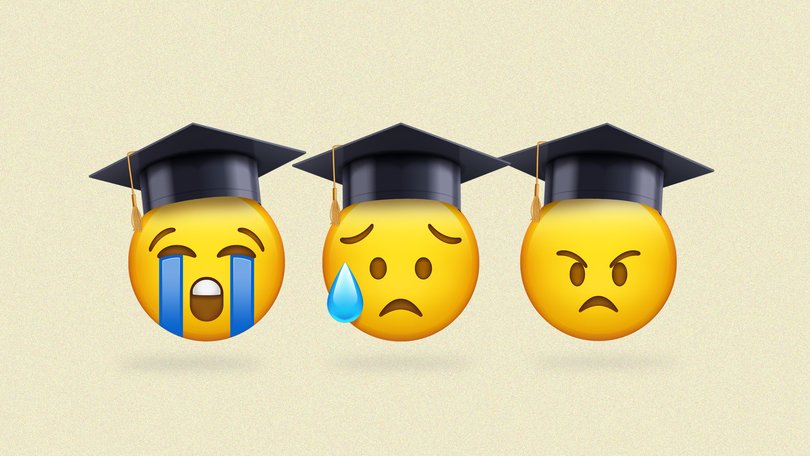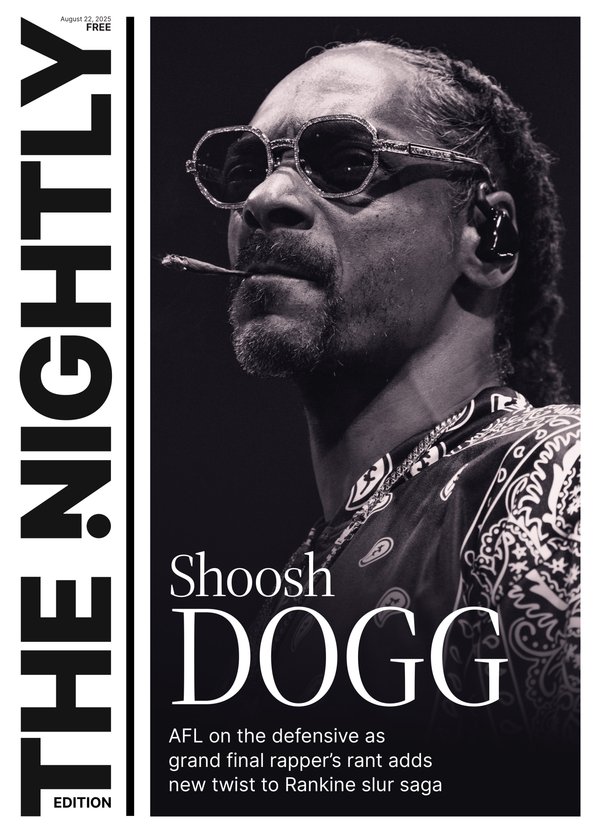AARON PATRICK: The Sydney professors who want to be taught like children

If any academics from NSW’s top vocational university are nervous about the school’s open day next Sunday, they can take a one-hour “de-escalation” training to help them keep “calm during challenging situations”.
The University of Technology, Sydney’s Faculty of Design and Society has hired instructors to help staff with “maintaining optimism,” “dealing with uncertainty,” “awareness of your behaviour” and “catastrophising” when meeting teenagers and their parents.
When an institution created to train young men and women worries about the ability of its highly educated staff to manage basic emotions, society is entitled to ask: why are these adults being treated like children?
Sign up to The Nightly's newsletters.
Get the first look at the digital newspaper, curated daily stories and breaking headlines delivered to your inbox.
By continuing you agree to our Terms and Privacy Policy.The answer, in this case, is the consequence of years of decay on university campuses, which have emerged as leaders in an infantilizing of human emotions that demands teachers, administrators and people in positions of power to take extreme care to protect others’ feelings.
In UTS’ case, the trigger is self interest. Academics have complained of operating under a “culture of fear” caused by a decision to cancel 120 unpopular courses next year.
‘Physically ill’
Many academics are understandably worried about losing their jobs. Instead of trying to understand why students aren’t interested in the Bachelor of International Studies, for example, and finding more useful degrees to teach, they complain about their feelings and pretend society’s interest is the same as theirs.
Some staff felt physically ill and others left work early after learning of the course suspensions, a local leader of the National Tertiary Education Union, poet Sarah Attfield, told the Guardian.
Another UTS lecturer, Isobel Crealy, asserted in an opinion article that the cuts would hurt “equity and social cohesion” because they include courses that train teachers to teach English to speakers of other languages. Dr Crealy omitted that the courses cut are at the masters and graduate level, qualifications many teachers might regard as unnecessary for a basic skill.
Another example of the extreme sensitivities encouraged in higher education was seen at Melbourne University two months ago. An anonymous person or people posted a private email around the law school written by a professor unhappy with a review into the safety of Indigenous staff and students.
Eric Descheemaeker described the review as “an ideological re-education camp” and said the law school was directed by by “Blak activists” who “have made us start every meeting with ritual prayers,” according to The Age.
“Their (non-existing) claims to land are now ‘acknowledged’ about every 10 feet in our corridors,” he wrote. “They want me to teach that Australian law is only ‘settler law’ and that there exists a rich body of ‘indigenous law’ alongside (what are indigenous private-law remedies, I wonder. Ritual spearings?).”
Two months ago the two-year-old complaint was printed out and stuck to several noticeboards on campus. Rather than conduct an investigation into his allegations, or have a discussion about their validity, the university offered counselling to any staff and students who might have been upset reading them. Asked to explain, the university said it “condemns all forms of racism”.
Free speech in action
In recent years, one field has emerged where academics support complete freedom of speech, even if it disgusts, upsets or intimidates a minority group. That is the war in the Gaza Strip.
The national president of the union representing university workers, Alison Barnes, this week said she plans to attend on Sunday a rally in Melbourne to “Stop the Genocide!” against Palestinians by Israel.
Outraged writers complained last week when a sponsor at the Bendigo Writers Festival, La Trobe University, said speakers would have to comply with policies that prohibit anti-Semitic speech. The university adopts a definition common in international circles that includes statements ”grounded in harmful tropes, stereotypes or assumptions and when it calls for the elimination of the state of Israel or all Jews or when it holds Jewish individuals or communities responsible for Israel’s actions.”
An estimated 53 speakers pulled out, forcing one third of the niche event to be cancelled. An author short-listed for the $50,000 Stella writing prize for women this year, Samah Sabawi, suggested on social media that any of the writers who turned up be shunned.
“Everyone has an obligation to turn their back to the Bendigo Writers Festival,” the Palestinian author wrote on X. “Any writer or anyone in the industry who plays along pretending business can go on as usual will be tarnished. Your presence is a statement.”
There was no sympathy for the feelings of Jews who might have been offended by attacks on Israel at an event run by the local city council. That double standard is one of the reasons why universities’ sensitivity to upsetting students and staff is hard to take seriously in places that should encourage robust debate, and help teenagers cope with confronting information and opinions.

